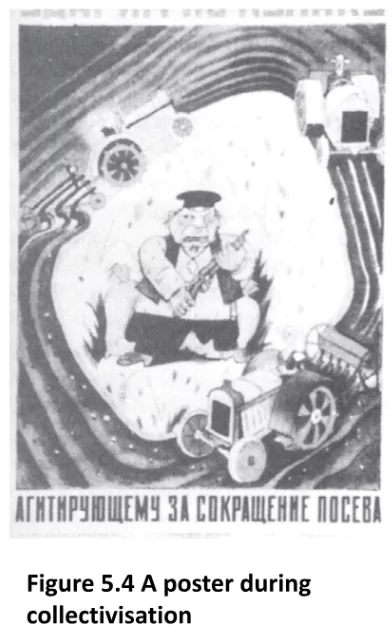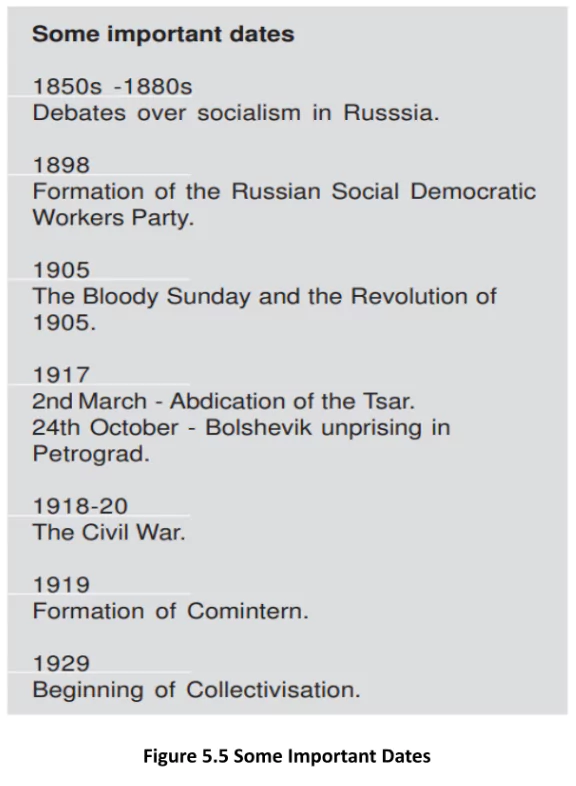![]() 19 Jul 2024
19 Jul 2024
Industry and banks were nationalized in November 1917, which meant that the government took over ownership and management. Land was declared as social property, and peasants were allowed to seize the land of nobility. The Bolshevik Party was renamed the Russian Communist Party (Bolshevik). Elections were conducted in November 1917 to the Constituent Assembly, but they failed in majority.
In January 1918, the Assembly rejected Bolshevik measures and Lenin dismissed the Assembly. Despite opposition, in March 1918, the Bolsheviks made peace with Germany at Brest Litovsk. The Bolsheviks participated in the elections to the All-Russian Congress of Soviets, which became the Parliament of the country. Russia became a one-party state.

Nationalization and Agrarian Reforms: During the Civil War, industries and banks were nationalized. Peasants were permitted to cultivate the land.

Collectivization Consequences: The period of early Planned Economy led to the disaster of the collectivization of agriculture i.e. combining and bringing under state ownership.
European Concerns: Existing socialist parties in Europe did not wholly approve of the way of taking over and keeping power by the Bolsheviks.
Flame of Inspiration: Russian Revolution inspired many Indians. Many inspired Indians attended Communist University. By the mid-1920s the Communist Party was formed in India.
| Must Read | |
| Current Affairs | Editorial Analysis |
| Upsc Notes | Upsc Blogs |
| NCERT Notes | Free Main Answer Writing |
Socialism, a political and economic ideology, played a pivotal role in the Russian Revolution of 1917. The revolution saw the overthrow of the autocratic Tsarist regime and the rise of the Bolshevik Party, led by Vladimir Lenin. The Bolsheviks implemented socialist policies, including land redistribution and the nationalization of industry, aiming to create a classless, state-controlled society. However, the Russian Revolution’s aftermath resulted in the formation of the Soviet Union. While the revolution was a watershed moment in history, it also highlighted complex challenges of translating socialist ideals into practical governance.
| Related Articles | |
| Classification of Industries in India | Economy |
| Largest Country in the World Russia | Socialist Principles in India’s Directive Principles of State Policy |
Glossary:
|
<div class="new-fform">
</div>